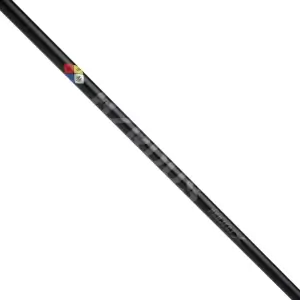 Using the right shaft is crucial to improving your golf game because it directly affects the accuracy, distance, and trajectory of your shots.
Using the right shaft is crucial to improving your golf game because it directly affects the accuracy, distance, and trajectory of your shots.
Choosing the right shaft can have a significant impact on your golf swing, especially if you’re a beginner or a high-handicap golfer. The shaft’s flexibility, weight, and length should all be considered when selecting a club.
The flexibility of the shaft, or its “flex,” determines how much it bends during the swing. A stiffer shaft will give you more control and accuracy, while a more flexible shaft will help you generate more clubhead speed and distance.
The weight of the shaft also plays a role in your swing. A heavier shaft will feel more stable and can help with consistency, while a lighter shaft can help you generate more clubhead speed.
Finally, the length of the shaft should be chosen based on your height, arm length, and swing style. A longer shaft will give you more distance but may sacrifice accuracy, while a shorter shaft will provide more control but may reduce your distance.
Overall, choosing the right shaft can make a significant difference in your golf game. It’s essential to get fitted by a professional or try out different shafts to determine which one is best for your swing.
There are several types of shafts that can be used for golf clubs, each with its own unique characteristics and benefits. Here are some of the most common types.
Types of Golf Shafts
1. Steel Shafts
Steel shafts are heavier and more durable than other types of shafts. They are commonly used in irons and wedges and provide a consistent feel and control.
2. Graphite Shafts
Graphite shafts are lighter and more flexible than steel shafts. They are commonly used in drivers, fairway woods, and hybrids, and can help increase swing speed and distance.
3. Multi-Material Shafts
Multi-material shafts combine the benefits of steel and graphite shafts by using a combination of both materials. They are designed to provide the best of both worlds, offering the strength and durability of steel and the lightness and flexibility of graphite.
4. Hybrid Shafts
Hybrid shafts are designed specifically for use in hybrid clubs. They are typically shorter than other types of shafts and are designed to provide a high launch angle and maximum distance.
5. Iron Shafts
Iron shafts are designed for use in iron clubs and can be made from steel or graphite. They are typically lighter and more flexible than steel shafts, providing more feel and control.
6. Wedge Shafts
Wedge shafts are designed for use in wedges and are typically heavier and stiffer than other types of shafts. They provide more control and precision on short shots around the green.
It’s important to choose the right type of shaft for your golf clubs based on your swing style, skill level, and personal preferences. A professional club fitting can help you determine the best type of shaft for your game.
